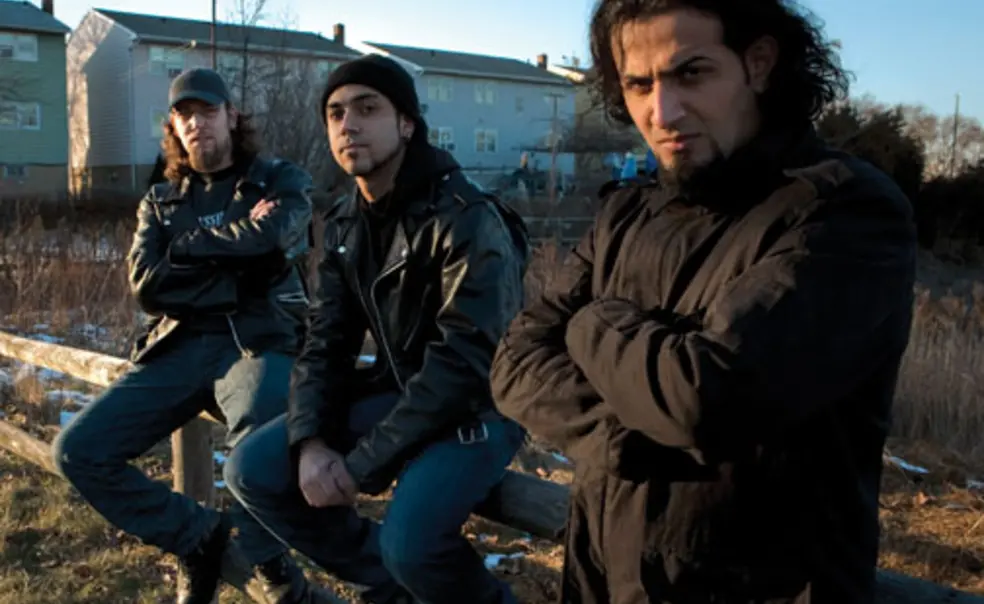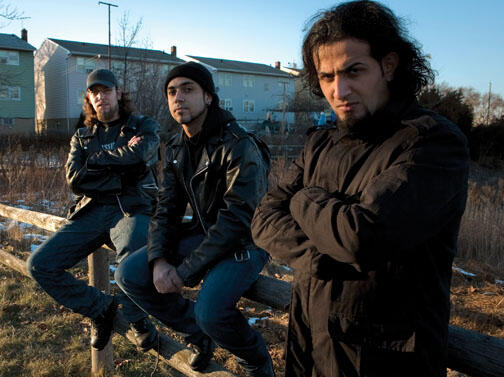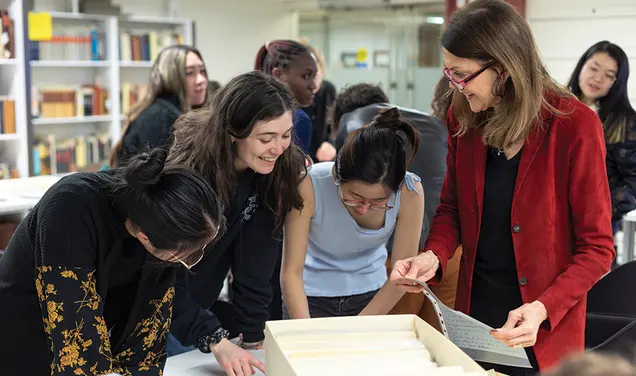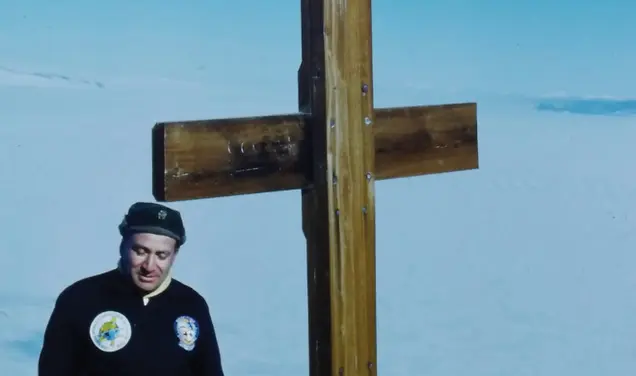I’ve never received a death threat. Or had my workplace blown apart by rocket-propelled grenades. I have never been forced to leave my home and family — everyone I know — to protect them. When I was Marwan Riyadh’s age, I wasn’t being hunted.
This is what I was thinking about as I sat on a secondhand couch in an apartment in Elizabeth, N.J., with the drummer for Iraq’s first heavy-metal band. As Marwan recounted other incidents from the band’s tormented past, it hit me just how much he and his band mates — Firas Al-Lateef, Faisal Talal, and Tony Aziz — had endured.
They had fled Baghdad late in 2006, when the country spiraled downward into violence, then spent more than two years in exile as their hope and money dwindled. Finally, band members had reached the United States — a happy ending — but how would they survive? The United States was in the throes of its worst economic crisis since the Great Depression. How many menial jobs and English classes would it take before they could perform again?
Marwan was plucking a donated guitar. He and his bandmates had to sell their instruments to pay the rent when they became war refugees in Syria. My younger brother is a musician. From him, I’ve learned that an artist’s instrument is an extension of himself — something he can’t live without — but Marwan’s furrowed brow told me he wasn’t thinking about his drums. Rather, he was focused on everything to which he had been forced to say goodbye.
Here’s the story: Nearly 10 months ago, I received a call from George Hritz ’69, a partner at the law firm of Hogan & Hartson and an overseer of the International Rescue Committee. I’ve learned a lot about the IRC’s mission from Hritz, as I’ve documented the organization’s work across Africa and in refugee communities throughout the United States. Still, his latest call came as something of a shock.
This band, Acrassicauda (it’s the Latin name for a species of black scorpion), had been living on the run and finally achieved refugee status. Unfortunately, the band members’ individual cases had been allocated to different resettlement agencies in different U.S. cities. The prospect of separating after all they had endured was too much to bear. An international media conglomerate called VICE, the group’s longtime champion, had reached out to George’s law firm for help, and Hritz was reaching out to the IRC.
I tried to learn everything I could about the band, whose story is the subject of a new documentary film called Heavy Metal in Baghdad. Heavy metal wasn’t tolerated during the Saddam years, and in the film, against a backdrop of carnage and destruction, the members of Acrassicauda struggle to rehearse and play without being killed.
The film shows the band members keeping their hair short, depending on erratic generators, and hiding their instruments in plastic bags to prevent being apprehended on the street. Watching the film, I couldn’t help thinking that at the same time my classmates and I walked through FitzRandolph Gate to open doors and opportunities, these Iraqis — now in their mid-20s to early 30s — were confronting the opposite of a future: losing friends to war and living a para-existence of paranoia and fear.
My friends and I discovered iPods while Acrassicauda scoured Baghdad alleys for bootleg tapes. As band members struggled to learn enough English to succeed in another country, my classmates and I pored over great works of literature with famous professors. The band played in secret, performing only three shows before the war started. Occasionally, they were compelled to “sing a song for Saddam.” In the film, Firas, the bassist, turns to the camera and explains: “To stay away from the devil, sing for him.” How different it was from life at Princeton, where we performed and protested anything we liked.
I first spoke to the musicians by phone when they were in Turkey after fleeing Iraq. I was excited and trying to sound hip. Five thousand miles away, their anxious voices described the details of an untenable existence. Money was running out; the band members were losing hope of making it to the United States. “We’re going to help,” I said with shaky confidence, realizing Acrassicauda needed help then, now, yesterday.
The IRC worked hard to keep Acrassicauda together. It was a tense and emotional odyssey. I’ll always remember that first arrival at JFK Airport last fall. It took three hours for Tony, the lead guitarist; Firas; and Firas’ wife and child to clear Customs. When they finally materialized, I leapt up from the uncomfortable chair I’d been sitting in and started filming. Firas, beaming, flashed the “devil’s horns” with one hand and pushed his 2-year-old child, clutching a teddy bear, with the other. “Oh my God,” was all he could say at first. He hadn’t slept for three days. “What a trip.”
Two months later, I was back at JFK for the second arrival. Faisal, the rhythm guitarist, arrived wearing a black T-shirt with an enormous skull on the front. The first words I heard from his mouth were, “Hi honey, I’m home!” I shook my head, wondering whether his sense of humor was a coping strategy.
Finally, on Jan. 30, 2009, Marwan stepped off the airplane at Newark Liberty International Airport. The family was complete. I wasn’t there — and should have been. So what if the plane landed at 3 a.m.? Who cared that I’d have to take a train by myself? “You didn’t show!” Firas called and razzed me the next day. He was teasing, but he wasn’t. That’s the thing about this band. They’re grateful for what we’ve done but expect more, because they’ve sacrificed everything.
Spending time with the members of Acrassicauda is both inspiring and humbling. Firas and I chat about philosophy; Marwan, music. They say they do not want to be known as “refugees,” but instead as musicians who stayed true to their calling. They want to be judged by their songs — songs that convey the hopes and dreams of a generation of young Iraqis whose lives have been shaped and deformed by years of violent conflict.
Back in Princeton, I talk to groups of students about humanitarian work. Live by Princeton’s motto, I say. Take risks for good. I try to get them to imagine what life is like for people who have had to run for their lives. Survival becomes the focus. Definitions of success we learn at Princeton don’t apply.
I speak about dreams. I haven’t always succeeded, I tell students, but challenge is a teacher. Strive toward your goals, no matter the cost. You’ll achieve what you set your mind to. I stand by those words, because they’ve been true for me.
“We haven’t won any awards, but we have won our freedom,” Marwan told me. Sitting with Marwan on that couch, I ask myself: Do I understand the real refugee story? Do I understand dreams? Because there is a difference: I’m only a witness to suffering. I embrace hungry toddlers, rape survivors, and Iraqi musicians and go home.
The members of Acrassicauda can’t do that — perhaps, not ever. I glance at Marwan, who is looking outside the window. The sky is overcast and dim despite the time: early afternoon. He’s the hardest of the band members to read, so I supply my own ending for now: We love our music and risked our lives to win the freedom to play it.
Emily Holland ’01 recently left her job at the International Rescue Committee and will study human-rights law in the fall.











No responses yet